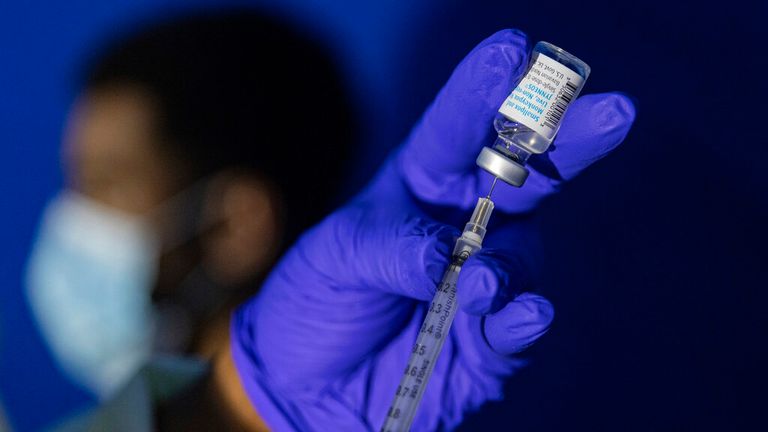
More mpox jabs ordered as UK anticipates new strain of virus
The UK government has procured 150,000 doses of additional mpox vaccine in preparation for anticipated cases of a new potentially deadlier strain causing a growing outbreak in Africa and isolated cases in Europe and Asia detected in recent weeks.
The UK has yet to identify a case of the Clade 1b strain of mpox, and health officials say the risk to the UK remains “low”.
However, its spread outside Africa led the World Health Organization (WHO) last month to declare the resurgence of mpox a “public health emergency of international concern”.
Despite precautions at UK borders, the long incubation time of mpox and likely global spread mean health officials are preparing for its arrival.
In addition to purchasing more doses of mpox vaccine, on Monday the UK Health Security Agency (UKHSA) published its risk assessment for Clade 1b, including scenarios for a UK outbreak.
“Alongside vaccination, we have been working rapidly to ensure that clinicians are aware and able to recognise cases promptly, that rapid testing is available, and that protocols are developed for the safe clinical care of people who have the infection and the prevention of onward transmission,” said Professor Susan Hopkins, chief medical adviser at the UKHSA.
The risk assessment is based largely on the ongoing outbreak of Clade 2 mpox that has led to more than 100,000 cases worldwide and nearly 4,000 in the UK.
That strain of the virus has been confined largely to gay and bisexual men and a vaccine campaign centred around sexual health clinics that began in 2022 has been successful in reducing levels of transmission in the UK.
The Clade 1b outbreak in Africa has different features that make the virus of concern. It has been spreading among heterosexual partners – largely among sex workers – but also causing outbreaks within families and among children.
Based on available data less than 1% of cases are fatal.
However with so few cases outside of Africa, there is little information to assess whether it is more infectious or more dangerous.
The first UK outbreak scenario assumes the Clade 1b strain is less infectious than the Clade 2 strain of mpox and results in “incursions and small clusters” of cases. In this case, any outbreak would be largely self-contained and contact tracing and isolation of infected cases would be sufficient to contain it.
‘Controllable epidemic’ is possible
The second scenario assumes Clade 1b is as infectious as the Clade 2 strain and would result in a “controllable epidemic”. In these circumstances, it is assumed that by the time it is detected in the UK, there would already be “established chains of transmission” among sexual networks.
Targeted vaccination of “high-risk” individuals including men who have sex with men, sex workers and at risk clinical staff is expected to be sufficient to bring the outbreak under control. “Ring vaccination” of contacts of infected individuals would be used to limit “breakthrough” infections within families including young children.
The third scenario assumes Clade 1b is more infectious than Clade 2. While, according to the risk assessment this should not be discounted, there is “considerable uncertainty on whether it is possible for mpox to be more transmissible”.
Not enough jabs for whole of UK
In this case, the virus spreads via physical contact and would lead to multiple outbreaks in households and other “close-contact” settings such as nurseries, care homes hospitals and prisons.
Steps such as contact tracing or quarantine would not be effective in controlling an outbreak in this scenario – only a UK-wide vaccination programme. Currently, global stocks of the mpox vaccine would be insufficient to allow this.
Hopefully, it would never come to that. Officials estimate that the most likely outcome for Clade 1b mpox is somewhere between the first and second scenarios.
For the time being, the UK has ordered what it believes to be sufficient vaccine to tackle the expected outbreak. A calculation also based on the fact the best way of protecting ourselves is to ensure there is sufficient global supply to ensure it is available in Africa – the current epicentre.
“Across government, we are closely monitoring the spread of this virus overseas and are proud to be at the forefront of the international response, including through our early support to the Democratic Republic of Congo,” said Health Secretary Wes Streeting.
